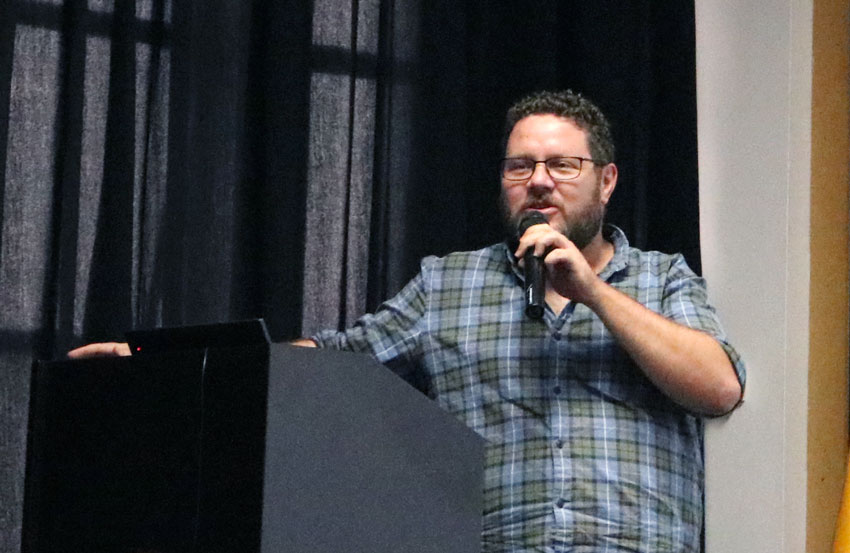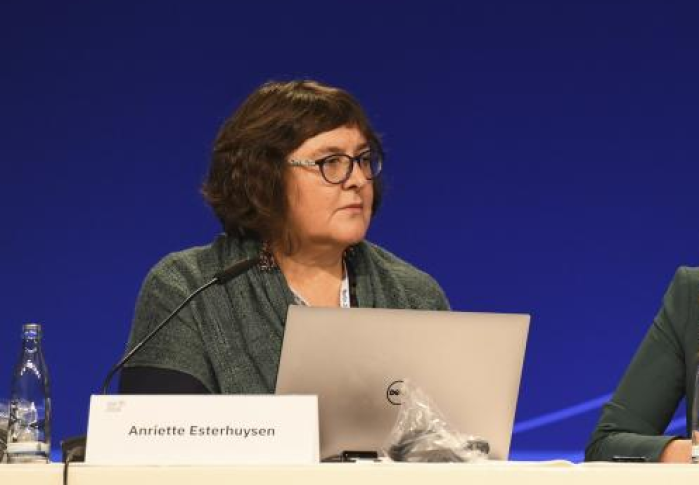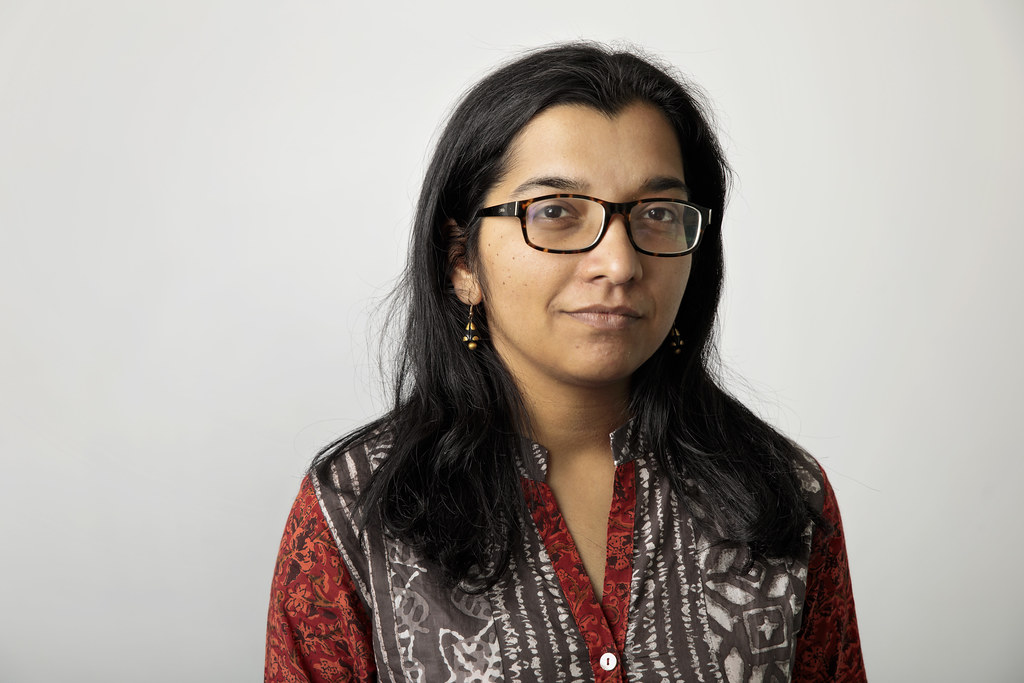The recently concluded WSIS+20 High-Level Event (7–11 July 2025, Geneva) marked a pivotal moment in the lead-up to the WSIS+20 Overall Review by the UN General Assembly, scheduled for 16–17 December 2025. The event served as a moment to reflect on two decades of progress toward the original vision of a people-centered, inclusive, and development-oriented Information Society, as outlined at the historic World Summit on the Information Society. Members of the Global Digital Justice Forum were active participants at the event, organizing and contributing to sessions that sparked critical debates on the structural injustices in the digital economy and society.
Some of the members share their reflections on the outcomes of WSIS+20 HLE and what they portend for the struggle for digital justice going forward.

Carlos Baca Feldman
Carlos Baca Feldman coordinates the training programme for community technicians as part of the Techio Comunitario initiative. He also currently coordinates the research area of REDES A.C. and Rhizomatica.
The WSIS+20 High Level Event and the broader WSIS+20 Review Process brought mixed feelings. While digital cooperation and inclusion were prominently celebrated, several key gaps remain. One is the lack of meaningful participation from those most affected by digital exclusion, particularly Indigenous Peoples. Twenty years ago, parallel spaces allowed Indigenous communities to articulate their priorities. Today, such spaces are far less visible.
Still, it is important to acknowledge progress. This year’s event felt stronger and more relevant than previous editions. The growing recognition of community-centered connectivity initiatives as effective solutions to digital exclusion reflects years of advocacy and collective work. These initiatives are no longer peripheral, but part of the conversation.
That said, repeated references to the 2.6 billion people still unconnected often felt disconnected from real-life struggles. The framing focused on numbers rather than people and ignored the structural inequalities that continue to block meaningful access. Many of the same top-down approaches that have failed in the past are still being promoted, even as community-led models demonstrate success.
Digital rights discussions often assume connectivity is already in place, overlooking that for many, rights begin with access itself. Coming from close work with unconnected communities, it was jarring to see the contrast with events like AI for Good. The distance between tech-driven narratives and grassroots realities is widening.
For digital justice to move forward, the WSIS process must go beyond celebration. It must create space for real dialogue with those building solutions on the ground and ensure that global digital agendas reflect the full diversity of experiences, priorities, and voices that define our digital world.

Philip Lee
Philip Lee is the General Secretary of World Association for Christian Communications (WACC) and editor of the international journal Media Development.
The WSIS+20 revealed how complex and complicated the issues are and the many varied and disparate understandings of what constitutes genuine inclusion. Giving the benefit of doubt to the organizers, they believe they are doing right by endless consultations and drafts of documents, so that all voices are taken into account. But the inevitable result is confusion, and, in a sense, the loudest voices end up having the greatest impact. The promise that summary documents/opinions from all sessions will be brought to the UN General Assembly is hollow when we know everything will be redacted and that the Pact for the Future, the Global Digital Compact, the IGF outcomes, and now the WSIS+20 outcomes have, somehow, to fit together in a workable and monitorable plan of action for the next decade. Nevertheless, civil society's voices are demonstrably stronger, there is greater consensus around what constitutes communicative justice, and everyone agrees that alliances are vital if real change is to be brought about and made sustainable. Even so, the struggle is nowhere near over.
We may be caught in a trap of the WSIS+20's making: that digital justice equates with communication justice. Digital justice may now be the major component, but communication and media freedoms are more than ever under attack politically, economically, and culturally. The WSIS+20 process does not tackle silencing and censorship in all its forms, nor accountability and impunity in regard to governments and corporate interests, nor the vital need for independent communication infrastructures that are able to withstand such enormous pressures. Last but not least, digital media literacy–contextualised and based on universal values of human dignity–is urgent if enhanced cooperation is also to be inclusive, people-centred, and development-oriented.

Anriette Esterhuysen
Anriette Esterhuysen is a human rights defender and computer networking pioneer from South Africa. She was the executive director of the Association for Progressive Communications (APC)–the largest ICT-focused civil society network in the world–from 2000 to 2017. She was appointed as the Chair of the Internet Governance Forum’s Multistakeholder Advisory Group in 2019.
I found the chair's report rather limited. It provides a good overview of the event but fails to reflect the underlying factors that have impeded the achievement of the WSIS vision to date, nor does it address the big challenges lying ahead.
Market failure, in respect of rolling out connectivity, is not acknowledged, but this in itself is not enough. Unless member states and other stakeholders acknowledge that the post-WSIS reliance on open markets to generate the conditions needed to close the digital divide, the same mistakes that have limited progress in the last 20 years will be repeated.
This is particularly important because while the digital private sector is so much bigger now than it was in 2003 and 2005, it also, at least when it comes to the telecommunications sector and large transnational platforms, lacks competition. If this is not taken seriously going forward the opportunity for growing more inclusive and diverse digital economies will again be lost.
This chair's report does acknowledge the disparities and that developing countries are often on the sidelines, but it could have done more to direct attention to the underlying causes of this.
Reading it again, it works well as a call for collaboration, and it does emphasise inclusion repeatedly. Unfortunately, inclusion can only be achieved if we take "exclusion" seriously, understanding its dimensions, its impacts, and its causes. Engaging exclusion is more complex and uncomfortable; it tests the spirit of friendly multistakeholder participation that events like the WSIS HL Event celebrate, but if we don't confront it, we will not make progress. It might be worth reminding ourselves that the real power of the multistakeholder approach lies precisely in open and honest debate and processing of what it is that we don't all agree on, and what we can do about that using the WSIS vision and the public interest as our north star.
As an event, it works well as a gathering of people and organisations that are very different from those who attend the Internet Governance Forum(IGF). It affirmed for me that we need both. WSIS is for practitioners, local innovators, regulators, governments, and people who work on digital infrastructure development and implementation of activities related to the WSIS Action Lines. I loved the fact that there were development finance people there, and that I could engage with telecoms regulators from developing countries who take market failure in the telecoms sector seriously and who are partnering with local communities and their partners to build solutions that give people control and choice about how they connect to the internet, what they do with these connections and what it costs them.
However, when it comes to meta-level analytical discussion, engagement, and debate that surfaces the huge divergences in interests and approaches to digital transformation, it works less well than the IGF, and the IGF does not do this well enough either, in my view. The sessions were just too short, and the overarching feel was that the purpose of the event is more about bringing people together than it is about understanding why, to mention one key issue, digital inequality is, for many growing rather than shrinking.

Pria Chetty
Pria Chetty is the Executive Director of Research ICT Africa. With a career spanning over two decades, she has advised global technology firms, intergovernmental organisations, national governments, and regulators on critical issues such as data governance, AI regulation, cybersecurity, digital economy and trade, and digital inclusion.
The recent WSIS+20 High-Level Event has come and gone, leaving me with a sense of unfinished business. While the official communiques will no doubt recognise the spirit, momentum, and progress, for me, critical conversations were systematically, albeit diplomatically, sidelined. The result is that the real tensions informing our collective futures, and the urgency for digital solidarity for humanity, was largely missed. The relentless global AI arms race, the rise of digital authoritarianism, widespread surveillance that directly ignores fundamental human rights, fragmentation of the global digital commons, the accelerating disruptions to vital supply chains–these must be THE issues of the digital solidarity day.
The digital invisibles remained largely invisible throughout much of the high-level discourse. Those without agency, who bear the brunt of exclusion, injustice, and violence, who live in fear, without recourse, redress, or options in the face of unchecked technological expansion, were just not there, not truly. This invisibility is not accidental but a consequence of the very structure of high-level diplomatic fora. The primary language of these fora is often technical and abstract. The prohibitive costs of travel and accommodation, coupled with the labyrinthine visa processes, effectively silence grassroots organisations and individual voices from the Global South who are direct witnesses to digital injustice.
At this reflection point, we must move beyond the rhetoric and obsession with the texts and do better. True solidarity demands that as a multilateral, multistakeholder community, we commit to (constructively and courageously) confronting uncomfortable digital truths head-on.

Nandini Chami
Nandini Chami is Deputy Director and Fellow, IT for Change. She is a public policy researcher and analyst working at the intersections of digital technologies and development practice.
The WSIS+20 HLE was a moment that filled me with deja vu. The dominant sentiment in the sessions–also reflected in the Chair’s Summary–was a firm conviction in multistakeholder collaboration as the solution to all digital governance challenges! Twenty years ago, when Internet optimism dominated the atmosphere, such faith may have been understandable. But at this juncture, close on the heels of unquestionable evidence about the complicity of transnational digital corporations in egregious human rights violations and crimes against humanity, having them as equal stakeholders at the digital policymaking table seems out of touch with reality.
What we need at this juncture is concerted action at the international level to address the concentration of digital power. The gaping democratic deficit in digital multistakeholderism must be addressed – we can’t have the current situation where corporations set the rules for the global digital economy in multistakeholder governance initiatives and where one powerful state threatens economic sanctions on those failing to comply with its rules for digital trade.
We need digital governance for, by, and of the people, where people of the global South are meaningfully included in shaping their digital destinies. We need an international digital order where public financing for digital and human capabilities development in the majority world is available, and where the same transnational digital corporations that colonised the majority world’s data resources pay back in corporate levies for the development of decolonial digital economies.
As far as the UN is concerned, we need an institutional mechanism in the UN CSTD–that listens to people for a transparent and accountable response to address the expanding ambit of digital public policy issues. To keep up the pressure at the multilateral level and with our national governments, a people’s movement that has an ear to the ground is vital. This is the gap the Global Digital Justice Forum is trying to fill.